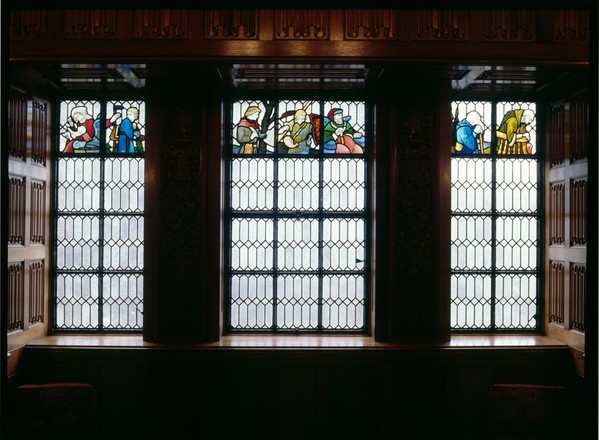
Seven Ages of Man stained-glass windows
1942
This sequence of seven stained-glass windows depicts the stages of life so eloquently expressed in Shakespeare’s play As You Like It (Act II, Scene VII):
At first the infant,
Mewling and puking in the nurse's arms.
Then, the whining schoolboy with his satchel
And shining morning face, creeping like snail
Unwillingly to school.
And then the lover,
Sighing like furnace, with a woeful ballad
Made to his mistress' eyebrow.
Then a soldier,
Full of strange oaths, and bearded like the pard,
And then the justice
In fair round belly, with good capon lin'd,
The sixth age shifts
Into the lean and slipper'd pantaloon,
With spectacles on nose, and pouch on side,
Last scene of all,
That ends this strange eventful history,
Is second childishness and mere oblivion,
Sans teeth, sans eyes, sans taste, sans everything.


 Back to list
Back to list